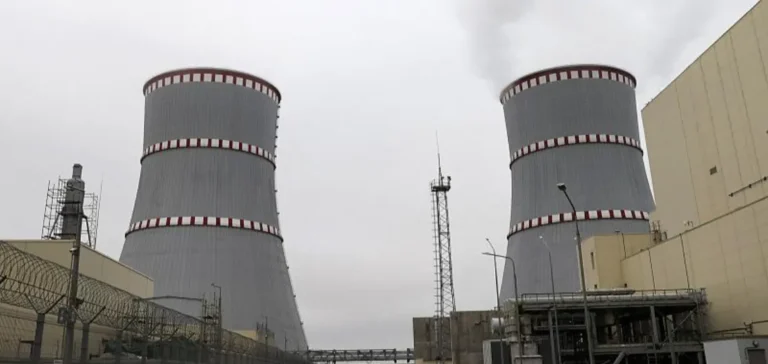Belarus has approved the construction of a third nuclear unit at the Ostrovets plant, as part of a public investment strategy aimed at strengthening the country’s power generation capacity. The decision was made during a meeting led by Alexander Lukashenko, who highlighted the operational advantages of expanding an existing site already staffed with a specialised workforce. The two VVER-1200 reactors currently in operation supply an increasing share of national electricity.
A consolidated site targeted by public funding
According to Lukashenko, the site’s known geological conditions will facilitate a swift launch of the project. He noted the demographic growth of Ostrovets, whose population has nearly doubled to around fifteen thousand inhabitants, driven by the creation of skilled jobs. The development of the plant has contributed to strengthening local infrastructure, reinforcing its role within the national energy strategy.
Deputy Prime Minister Viktor Karankevich confirmed that public funding will also support studies in the Mogilev Oblast to evaluate a potential second location for a future nuclear power plant. This prospect could generate new employment opportunities and foster economic growth in the eastern part of the country, identified as a priority area for industrial rebalancing.
Operational review and impact on the power grid
The government used the meeting to review the plant’s performance five years after the first unit entered service. Authorities stated that the facility now contributes over one-quarter of the country’s total electricity production. Lukashenko also emphasised the role of nuclear in the ongoing electrification of heating and transport systems.
Survey data indicates a significant rise in public support for nuclear energy, increasing to over 80%. This shift is attributed to the gradual integration of the plant into the national energy landscape and its measurable economic impact.
Technical cooperation between Minsk and Moscow
Rosatom, the project’s technical partner since the general contract was signed in 2011, recently held talks with the Belarusian government. Director General Alexey Likhachev met with Prime Minister Alexander Turchin to assess potential scenarios for further development of the national nuclear programme. Discussions focused on future grid requirements and industrial capacities.
The nuclear programme represents one of the most significant public energy investments undertaken by Belarus in the past decade, supporting a strategy focused on supply stability and modernisation of national infrastructure.






















